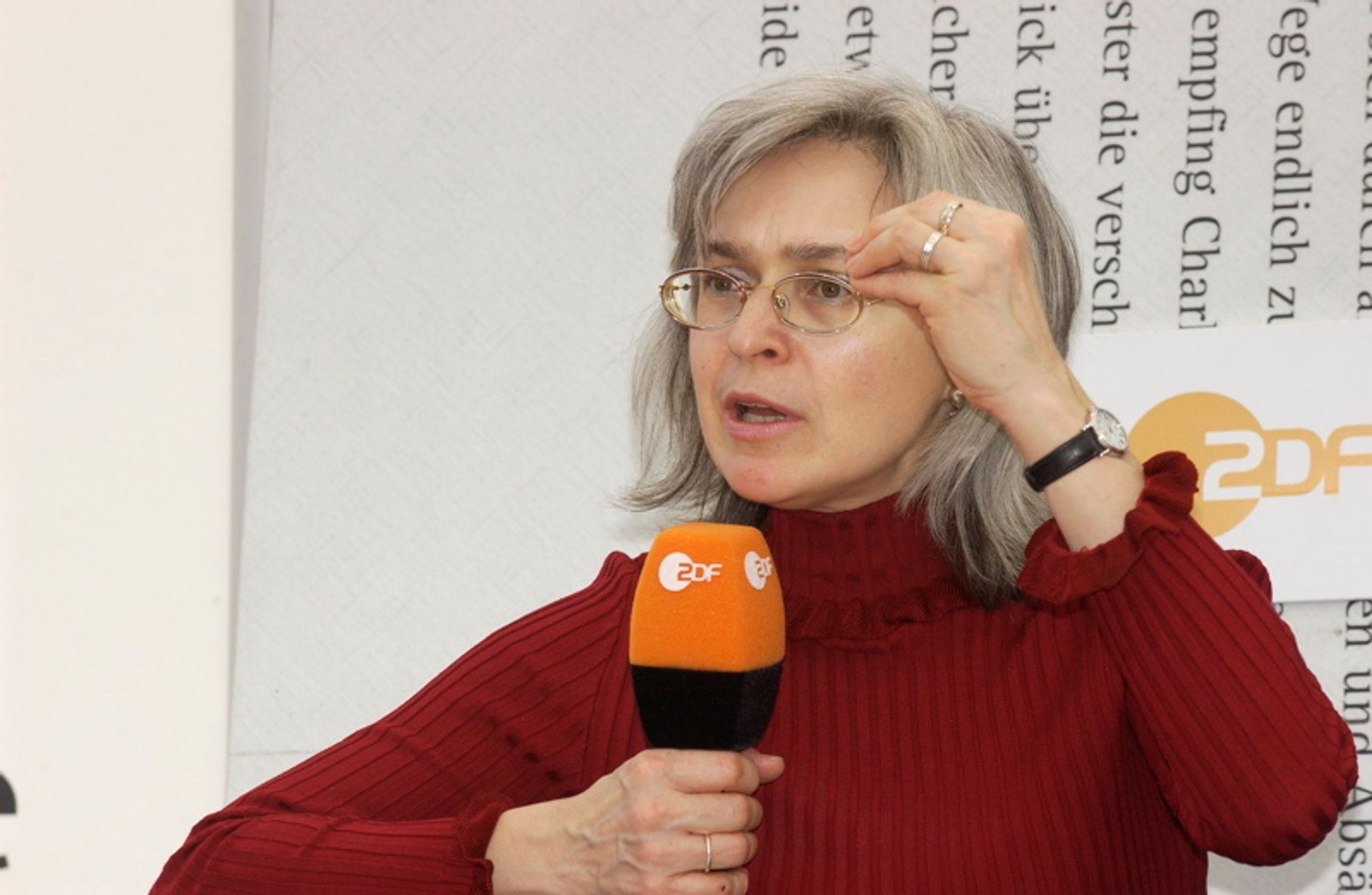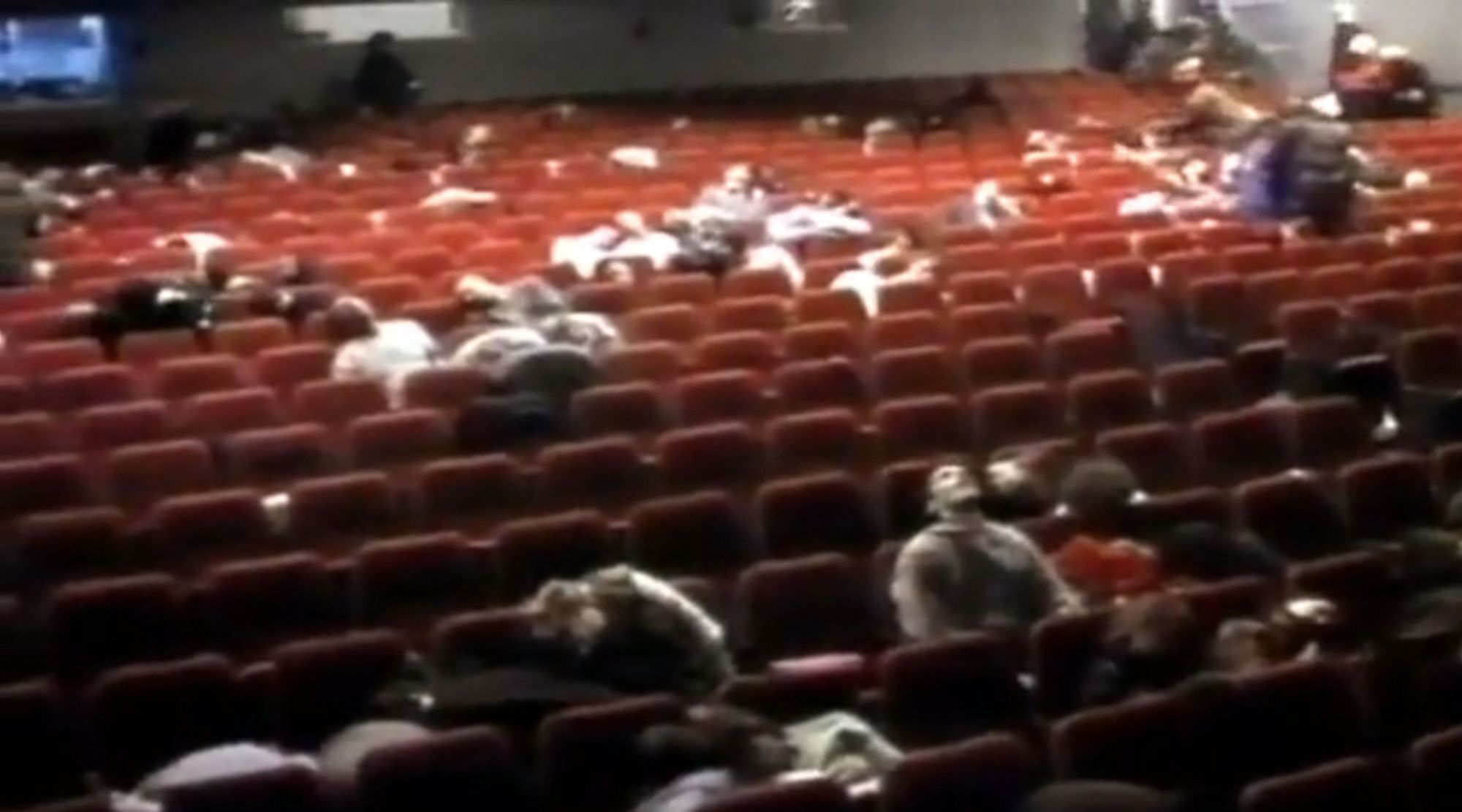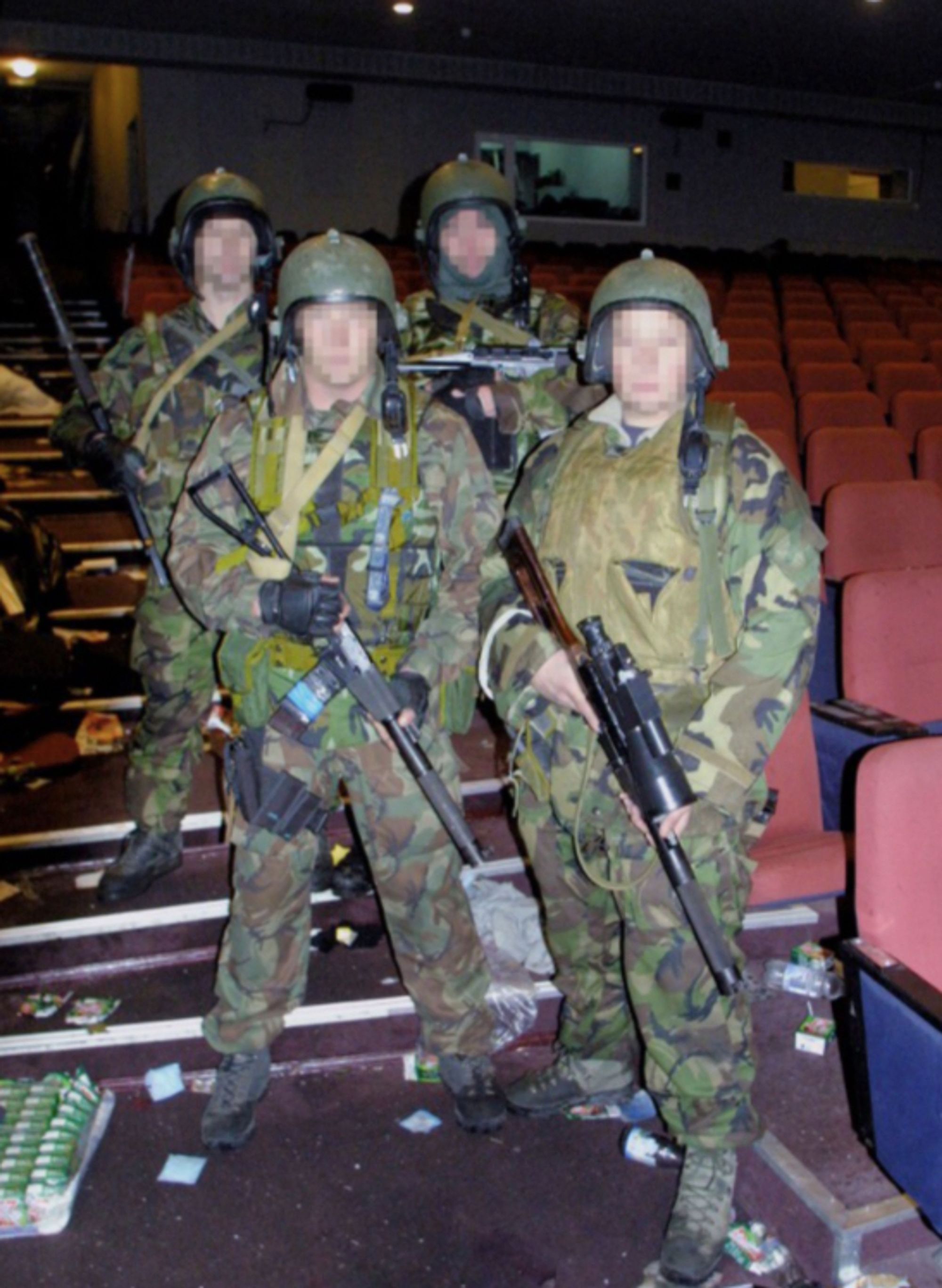I Did Not Know Anna Politkovskaya
Editor's Note: Anna Politkovskaya was a Russian journalist, human rights activist, and outspoken critic of Vladimir Putin. She rose to acclaim covering the Second Chechen War (1999-2009), a conflict that pitted Islamist separatists who declared independence from Russia against pro-Russian factions led by Chief Mufti of the Chechen Republic of Ichkeria, Akhmad Kadyrov, and later his son, Ramzan Kadyrov. Like Putin, Ramzan has become known for stifling free speech and widespread human rights abuses, including the detention and torture of homosexuals.
On October 23, 2002, 40-50 separatist Chechen rebels walked into a Moscow theater during the second act of a sold-out production of Nord-Ost, a popular musical, taking the audience of 850 people hostage. Politkovskaya was one of the high-profile journalists and public figures who negotiated unsuccessfully for their release. On the fourth day of the siege, Russia’s security forces pumped a fentanyl-based anaesthetic into the auditorium before raiding the building. As a consequence, one-hundred thirty hostages were killed by the gas—though the exact figure is unknown.
Due to her relentless reporting, Politkovskaya was subject to numerous violent acts by Russian authorities, including being taken hostage in Chechnya and mock-executed; poisoned on a flight to negotiate a school hostage crisis; and finally assassinated in the elevator of her Moscow apartment block in 2006.
for Alexei Navalny
Not long ago, I saw a YouTube video of Grozny as it is today, when the showplace part of it—thrown up as fast as a bank heist with massive infusions of Russian aid—resembles a Martian colony from the cover of a '50s science-fiction novel: marble esplanades, Moorish waterworks, winding veils of novelty lighting crawling over Ali Baba spires and minarets, “playful” highrise slabs from the desk of Philip Johnson, Coney Island knockoffs of the Taj Mahal, the Blue Mosque, the Transamerica Building...a Potemkin Village for the international 1% of the 1%. And then the glorious new sports stadium, which can probably be rented out for honor killings and executions. The camera spots Ramzan Kadyrov nuzzling Mike Tyson, as Hillary Swank wishes the Little Stalin of the Northern Caucasus a happy birthday.
I wonder: do vicious children attach more sentimental import to their birthdays than normal people do? I ask because this Kadyrov, this torturer, this pie-faced emblem of human filth, is having the time of his life, frugging with himself onstage like a drunken Mayfair date rapist, dodging Jean-Claude Van Damme’s karate kicks, gleeful as a six-year-old tearing ribbons and gift wrap off a Kalashnikov. And it is said that the person who contracted the murder of Anna Politkovskaya, probably someone high in the FSB [Federal Security Service], intended it as a gift to the Moscow dictator, who turned 54 that very day. Some people think Kadyrov sponsored the murder (“also as a birthday gift for Putin,” they always note with a certain black humor), though here, I think, the better wisdom belongs to Alexander Litvinenko: “Only one person in Russia can kill someone like Anna Politkovskaya, with her standing, her fame, and that is Putin.” A present Putin gave himself, then.

Killed why? Because a truly insensible gangster kills the witnesses even if they’ve already spilled—for revenge, the thrill of impunity, the joy of killing that Ramzan Kadyrov and Vladimir Putin know so well. Because no one like myself—who has never been to Chechnya, knowing whatever I know about it because of Politkovskaya—can look at this spun-sugar Neuva Grozny without seeing mangled corpses tossed from Army trucks, mothers picking over body dumps for a son’s jawbone or a husband’s arm, mile upon mile of slaughtered livestock, looted farmhouses, and incinerated villages. What is that expression? You can’t make a silk purse from a sow’s ear?
“The lives of hundreds of thousands of people, people who wanted to live, enjoy themselves and raise their children, their lives will no longer exist, they will be killed, waiting in vain for our mercy. But do not think that we will get away with this, that we will be able to continue our careless, happy lives.”
—Anna Politkovskaya, January 3, 2000, Novaya Gazeta
It is all too bad if we pretend a happy end will come anybody’s way if one person’s happy end is someone else’s catastrophe. “This is a very old fairy tale like many others before,” Politkovskaya wrote. And later, speaking of Kadyrov in his father-of-the-country costume: “I think the new Kadyrov is the one who gives a ride in his car to Moscow ladies who long for more brutality…many of our colleagues have gone out of their way to make us believe…that absolute evil can triumph today so that in some hypothetical future this evil can become good. This is absolutely not true.”
In French there is a special word for the sensation roused by the sight of a happy murderer, who has seemingly gotten away with everything and wants the world to know it: abrutir is the verb form. Abruitissement is the visceral feeling of being turned into an animal, of being made crazy enough to kill. Something to be gleaned from Politkovskaya’s writings, if we do not already know it, is that people in the wrong experience abruitissement as readily as those who are, demonstrably, in the right. Abruitissement, implicitly the absence of thought, may be precisely what enables people to do evil, as Hannah Arendt speculated: “Could the activity of thinking as such, the habit of examining whatever happens to come to pass or to attract attention…be among the conditions that make men abstain from evil-doing, or even actually ‘condition’ them against it?” I would say that those with great heart are invariably in the right, in some sense, but that isn’t enough. Or at least it’s a question.
Surely one day an opera will be written, in the spirit of The Death of Leon Klinghoffer or Rautavaara’s Rasputin, about the Nord-Ost hostage crisis of 2002. Nord-Ost is Coriolanus and the Brothers Grimm, Antigone and Pirandello—in truth, Nord-Ost is a lot about Antigone, and even more about The Revenger’s Tragedy. A nested Russian doll kind of opera: make-believe soldiers singing and dancing onstage; the audience, an eclectic mixture of 850 souls, many of whom believe at first that the terrorist attack is part of the musical; and Chechens in ski masks and burqas—45, 50? It’s never been known exactly how many, and at least a few are thought to have slipped away before the end. They promised to kill everyone in the theater unless Putin withdraws all Russian troops from Chechnya, immediately.
At a potentially crucial moment, Politkovskaya, who knows this demand won’t even be considered by Putin, who knows Putin’s style of crisis management is such that rescuing live hostages is not a priority. This is a grim and finally thankless duty she accepts despite the fact that the Chechens who’ve asked for her act like she owes it to them, and the Russians on the other side of this have tried to kill her at least once.
Anna is not an operatic character at all, even if her role in print is that of a premonitory chorus, or the Nurse in Medea, or Cassandra—all the same, she is the only mediator the terrorists will speak to. But it does not go smoothly. It doesn’t go at all. Other negotiators arrive and leave with equally empty hands. (Conspicuous by his absence is Kadyrov senior, still President of Chechnya at this time. The terrorists will release 50 hostages if he meets with them; with congenital cowardice, he later claims he was never told of the offer.)
Finally, the gas, still unidentified, some mixture of fentanyl and a special FSB ingredient no doubt, wafting in filmy layers from the ventilation system. This moment when the gas spreads through the theater, inducing lethal sleep—there is a fable here, surely, about the Russian public and its wish to know nothing about what their army is doing in Chechnya (just as Americans don’t want to know what their drones are doing in Iraq, Somalia, Pakistan, Syria, Afghanistan, and Yemen); the press blackout of this second Chechen war; the theatrical illusion of “consumer’s democracy”; and this place where it collides with the unforgivable reality behind the curtain. And something about the witch’s poisoned apple, too, and the Potemkin mutiny, and Alvaric the evil dwarf counting the Rhine gold in the Kremlin.

Politkovskaya was much loved, but not an easy person, abrasive with colleagues, prone to insult the wrong people to their faces, and, while it says nothing about whether she was right or not, self-righteous; her flaws as well as her virtues (talent, compassion, indefatigable persistence) made her an exemplary witness to barbarism in Chechnya. She wrote droll, finely observed, occasional pieces—on her travels abroad, the Paris launch of one of her books, the life and times of her dog, press corps meet-and-greets and tête-a-têtes, of varying absurdity, with exiles and world leaders; in Denmark, she is pleasantly startled by the humane treatment of prisoners; in Australia, amazed to get onto a naval base by simply flashing her passport. It shouldn’t really be surprising that she could enjoy having a good time, but it is, a bit, because the great majority of her writings record unbearable events and circumstances. One wishes she had found more time for selfish pleasure, less responsibility. An abiding theme of her peregrinations is her stupendous relief at not being in Russia. Even though we know her fate, only one of these pieces is sad-making, the one that describes seeing Tango Por Dos in London—sad, because it was thrilling to watch, and a stabbing reminder that the passions of the tango were probably not in the cards for her any longer. Not because she was too old for them, but because she saw intimate relationships in Russia as generally brutish and stupid, conducted in apartments that were too small, squalidly troubled by money problems, and too likely to carry on past their expiration date.
And besides, there was Chechnya.

There’s this, I will say: for a person who sets off on a difficult road, at first the pleasant, crooked country lanes and rustic byways branching off from it in all directions remind him that he can change his course at any time. “If I get tired I will take the next one to the right, or to the left, or go down some road that comes after that.” But if this person keeps following the same path, eventually these intersecting forks and branches become unwanted distractions, and after a while he doesn’t even take account of them. Sooner or later, he reaches a point of no return. After that he cannot turn away from what his particular, chosen road presents him with without losing his sense of who he is, because he now understands that he has chosen it, and, in a mysterious way, the road has also chosen him.
People say Politkovskaya changed after Nord-Ost. Or after she was tortured and put through a mock execution in Chechnya. Or after being poisoned on a flight to Belsan during that hostage crisis. Whatever the case, you can see a change—nothing exactly alarming, a small tear in the scanning pattern—in her later interviews: something like a shadow, or a wash of gray watercolor, clouding her skin. She is probably just exhausted. Her voice level, measured, almost without inflection, like that of a person who has removed some vital part of herself to a safe, distant place.
“She wasn’t charismatic, she didn’t fill lecture halls, and she wasn’t much good at talk shows either” (Anne Applebaum, in a forward to Putin’s Russia by Anna Politkovskaya). Well, all this is partly why we trust her. Even among the few outstanding journalists of our time, there is no one quite as indifferent to the circus of renown as she was.
“There is no need for truth today.” A Chechen widow who has seen all her relatives slaughtered tells this to the camera in Masha Novikova’s documentary Anna: Seven Years on the Front Line. “That’s why they killed her.” Politkovskaya was believed, even by some who despised her, because she really did write only what was true. Not just reporting parts of the truth that happened to serve her parti pris, but also complicating facts, mitigating causalities, the “yes, but…” that even well-intentioned people quite often omit from their account of things. What happens when your idea of the truth is whatever evidence fits is this: inevitably, the little thing you left out to sound more convincing will eventually surface, and even though it is a small thing, your decision to leave it out will make this little thing bigger than the big thing you were trying to reveal. The same is true of exaggerations: the fudged figure, the inflated injury, the overdrawn malfeasance inevitably makes the world a little worse.
Whether we admit it or not, we expect journalists to be magically immune to real danger, in part because they are, technically, “civilians,” like us, and even though civilians are killed in far greater numbers than soldiers in all modern wars, some originary concept of war as a contest between specially trained, armed males in uniform makes the kind of wars we have today bewilderingly muzzy and shockingly without boundaries or respect for persons of any station or kind.
It is, in reality, all the same war, everywhere and endless, subsiding in one place as it flares in another. There is no special category of non-combatant equivalent to the white flag or the red cross: even those universally recognized symbols mean nothing to most people in the “conflict areas” of our era. The savagery of the Second Chechen War was more extreme than anything seen in Europe since the days of Vlad the Impaler. Anna Politskovskaya understood that she had nothing protecting her. “Risk is part of our job. It’s not part of a teacher’s job or a doctor’s job, but it is of our job. I think a journalist has to be prepared and understand that it can happen, so no tears and no fears. The important question is, what change has our article brought? Has something changed for the better in our society?” ♦
2012-2020
Subscribe to Broadcast